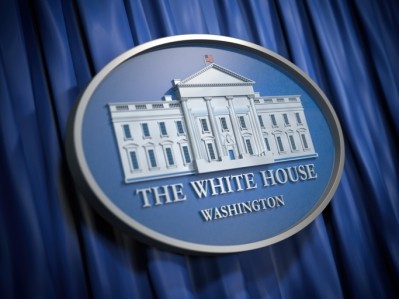NMPF criticizes USDA dairy aid package for falling ‘far short’

NMPF Chairman and dairy farmer Randy Mooney penned the open letter and advised the USDA to “better reflect the dairy-farm incomes lost to tariff retaliation when it calculates its next round of trade mitigation payments”
Mooney cites several studies in the letter to illustrate how the dairy industry has suffered in 2018 and how the aid package does not measure up.
Over the summer, President Trump became embroiled in trade disputes with Canada, Mexico and China, all of which had a direct effect on dairy tariffs. In July it was announced that the USDA would dole out an emergency aid package of $12bn to mitigate the impact across all agriculture industries.
The first payout of $4.7bn came in August, with $1.2bn going directly toward buying surplus food that hasn’t been able to sell in markets that now have higher import tariffs. About $85m of that was reserved for buying surplus dairy.
Fluctuating futures
In the letter, Mooney thanked the administration for its continued efforts and advocacy on behalf of the US dairy industry, but shared that it is ‘greatly concerned’ for the sector’s future nonetheless.
He said that despite a decade of steady decline in prices, futures markets this past spring indicated that prices would improve later in 2018, coming out on top of second-half prices of the last three years. But the summer’s trade wars changed things.
“Futures made an abrupt about-face after Mexico, China, and other nations announced retaliatory tariffs on U.S. dairy imports. Because of those actions, second-half prices this year will end up well below those of the previous three years,” Mooney said.
The NMPF concluded an analysis that roughly $1.5bn in revenues will be lost by dairy farmers in the second half of 2018 as a result of the retaliatory tariffs, and “significant income losses will continue if they stay in place.”
It corroborated this figure with studies conducted by USDA’s own monthly World Agricultural Supply and Demand Estimates (WASDE), Informa Agribusiness Consulting and the Center for North American Studies at Texas A&M University, all of which arrived at similar numbers.
But Mooney says the USDA’s approach has only resulted in $127m in market facilitation payments thus far, and “based on the analyses outlined above, this falls far short of the losses dairy producers have faced.”
Backing USMCA potential
Even with the disappointing effort, the NMPF and other dairy organizations are ‘eager’ to work with USDA on a plan that “better reflects the struggles dairy producers across the country have faced due to the tariffs” as allocation for a second payment may be announced before the end of the year.
The Wisconsin-based Edge Dairy Farmer Cooperative recently became the number four dairy co-op in the US based on the amount of milk produced on its members' farms in the Midwest.
Edge and its members were among the US majority in favor of Trump’s recently revamped NAFTA deal, the US Mexico Canada Agreement (USMCA), finalized in early October.
Canada’s dairy farmers were less enthused with the agreement’s details as it allows easier access to the Canadian market. Many called out Prime Minister Justin Trudeau for not putting Canada’s domestic workers ahead of the deal’s convenience.
But Brody Stapel, board president of Edge, told DairyReporter, “We were pretty excited about the USMCA deal and hope it gets through Congress. We weren’t so much looking for access to the Canadian market or to destroy their supply chain, but to abolish the Class 7 [pricing] that’s displacing the US market.”
“We’re being very patient with Mr. President Trump. Lots of farmers out there are hurting, but you’d be hard-pressed to find any that aren’t happy with the direction things are going.”








